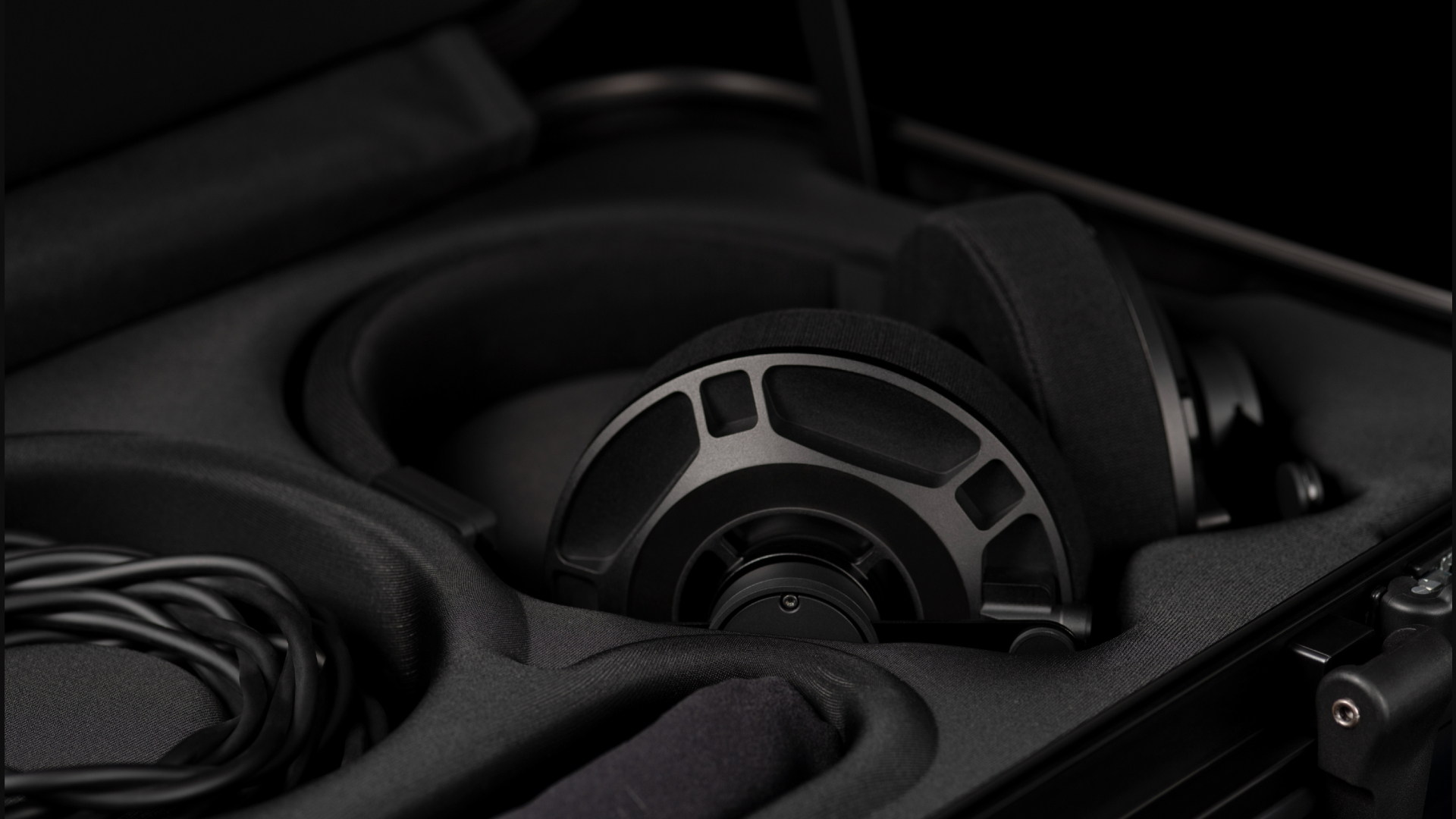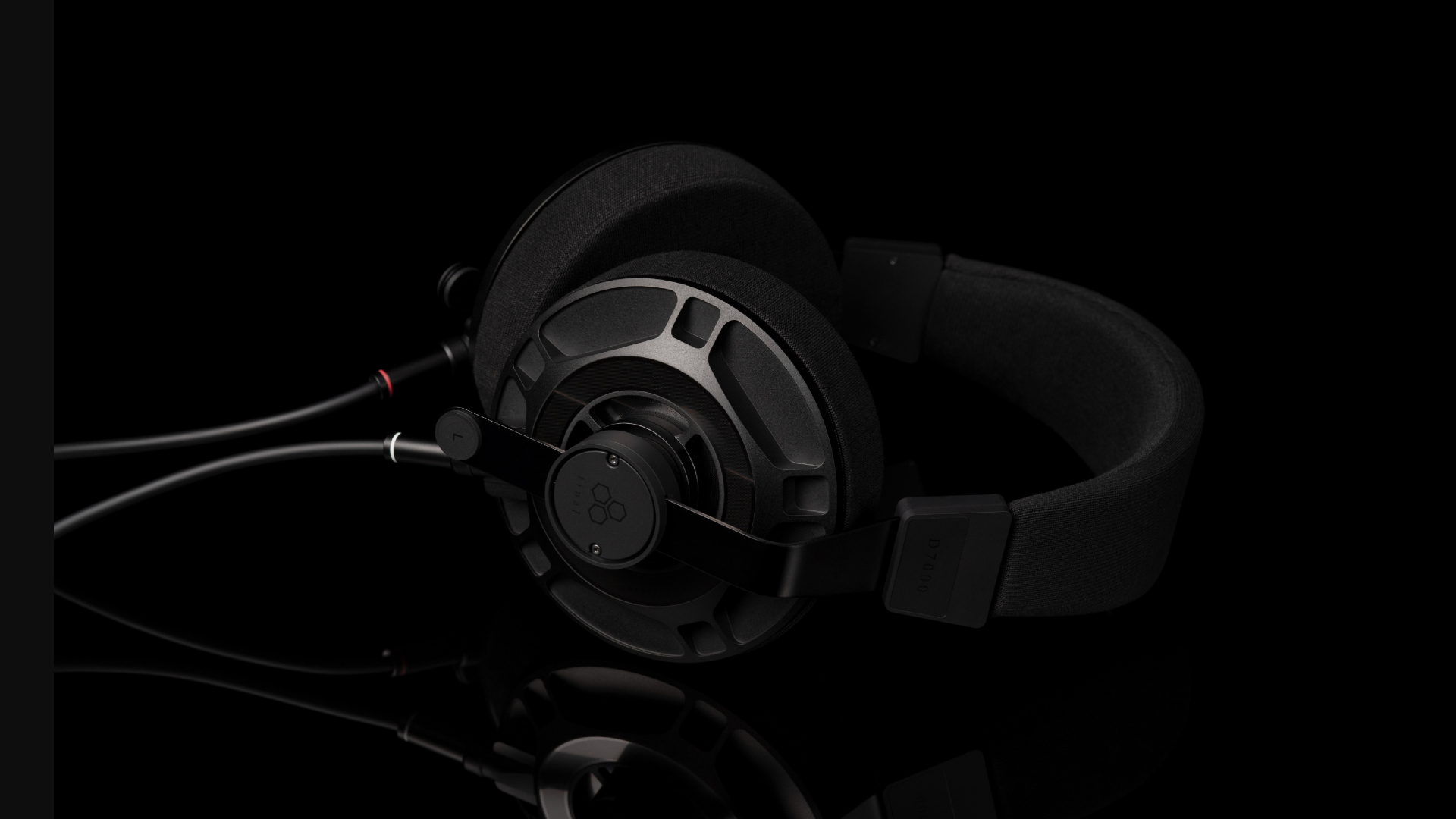Final's new planar magnetic headphones are dark, moody, wired… and oh-so expensive
A triumphant return to high-end, four-figure price-tag roots

Final Audio is not your run-of-the-mill headphone specialist – see our glowing Final ZE8000 MK2 review or our five-star Final VR500 review if you need proof.
The keen-eyed will have noted that neither of the examples above (a pair of true wireless earbuds and a set of inexpensive wired IEMs) are what Final is famous for. But the new D7000? This is a return to audiophile, planar magnetic, full-size headphone roots for the brand – oh, and also to four-figure price tags.
Having first developed its own driver technology for the Final D8000 and D8000 Pro Edition (skip to entry no. 4, seen at High End Munich 2022), Final tells us it has since improved on its Air Film Damping System (AFDS) for greater efficiency and extended reproduction of bass frequencies. To drill down into that a little more, Final explains that with conventional planar magnetic headphones, the driver unit is typically designed to limit the lowest bass frequency produced. Why? It prevents the flat, delicate diaphragm or membrane (which is very different to the rigid, cone-shaped driver used in dynamic designs) from coming into contact with the magnet when playback volume is high.
In the D7000, Final claims its proprietary AFDS solves the problem of the diaphragm coming into contact with the magnet, so that it becomes "possible to lower the frequency of the bass tones that the driver can reproduce without distortion".
Final has also used aluminum-magnesium alloy for the D7000 housing which, as well as being lightweight (and particularly dark and moody), means the housing can be machined with great precision.
A pinna-aligned diffuser for sonic consistency

Final has also developed a new pinna-aligned diffuser for the D7000, in a bid to make them some of the best wired headphones going. The aim here is sonic consistency, irrespective of ear shape. Final's approach to natural sound is both meticulous and even surgical at times – numerous simulations tailored to various shapes of the outer ear and hearing experiments were conducted, leading to the creation of a diffuser shape that Final claims "is optimal for all users".
As a flagship Final product, you'd expect flagship accessories, and the D7000 is no different. The company's newly developed open-type earpads use a unique Washi material, meaning Japanese traditional paper, which Final says has "superior durability, air permeability, moisture control, and antibacterial/odour-eliminating properties."
Get daily insight, inspiration and deals in your inbox
Sign up for breaking news, reviews, opinion, top tech deals, and more.
The D7000 is also supplied with a dedicated protective carry case, which can store a selection of headphone cables and can be locked for added security. Final has supplied the D7000 with a 3m OFC cable terminated with a 6.3mm headphone socket.
The Final D7000 planar-magnetic headphones are available to buy now from selected retailers worldwide including Audio46 (US) and Premium Sound (UK) for $3,499 / £2,999 (which means in Australia you're looking at around AU$5,700, although that's just a conversion), which puts them way beyond the Meze Audio Liric in terms of pricing. Are they worth it? Watch this space…
You may also like
- See our pick of the best noise cancelling headphones you can buy in 2024
- Consult our best Sony headphones guide if you want to stick with Sony
- Prefer earbuds? Our best earbuds roundup is the one for you

Becky became Audio Editor at TechRadar in 2024, but joined the team in 2022 as Senior Staff Writer, focusing on all things hi-fi. Before this, she spent three years at What Hi-Fi? testing and reviewing everything from wallet-friendly wireless earbuds to huge high-end sound systems. Prior to gaining her MA in Journalism in 2018, Becky freelanced as an arts critic alongside a 22-year career as a professional dancer and aerialist – any love of dance starts with a love of music. Becky has previously contributed to Stuff, FourFourTwo and The Stage. When not writing, she can still be found throwing shapes in a dance studio, these days with varying degrees of success.